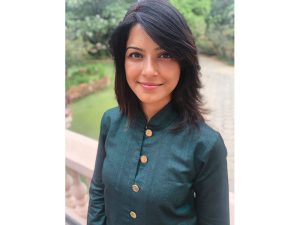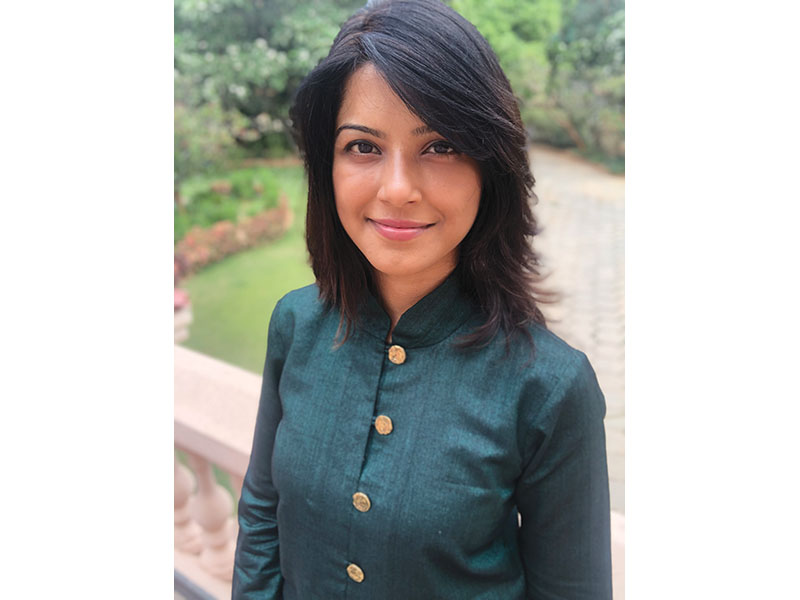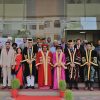21 Higher education leaders racing to develop india’s high-potential human resource: Kiran Pai
Kiran Pai
Pro-Chancellor, Vidyashilp University, Bangalore

A science graduate of the American School of Education, Dubai with a Masters in education from Monash University (Australia) followed up with a doctorate in education from University of Southern California’s Rossier School of Education, Kiran Pai is co-founder and Pro-Chancellor of Vidyashilp University, Bengaluru and chairperson of Vidyashilp Education Group.
What are the major objectives set for Vidyashilp University for India’s 100th Freedom Anniversary in 2047?
From the start, we were clear about what we don’t want to replicate. We don’t want to design a university system where structure limits possibility. Right now, we have education systems in the country where the curriculum, assessments and pedagogy are all geared towards producing clerks and entry level administrators, as the highest possible outcome for a university graduate. We have no interest in following this tradition.
Now it is time to build, design, develop, improve, create products, start-up companies, bring technology into daily life, strengthen public systems, and solve real-world problems through research.
In alignment with these goals, Vidyashilp U has established Centres of Excellence for education innovation; public policy; AI for social good; health systems and entrepreneurship; to build a strong base of global academic partnerships to give our students international exposure without diluting Indian context; enhance faculty development to build world-class teaching and research capacity; scale community engagement through initiatives like VU Care and Aarohan, ensuring that well-being and social responsibility are woven into our fabric
How satisfied are you with your progress thus far?
I have never seen a serious university claim it is satisfied. But the type of people and institutions reaching out to Vidyashilp gives us confidence — faculty from SOAS (UK), University of Michigan, Temple University (USA), IIM Ahmedabad, IIT Madras, NLSIU, IISc Bangalore and Tbilisi Art Academy and Camberwell College of Art (UK). Our students have presented at forums like the International Mediation Clinic Network hosted by the University of Strathclyde, UK and have taken up internships with Education New Zealand. Prof P.G Babu, the Vice Chancellor of the university, and I feel reassured by the credibility that our institution is earning. Parents tell us that they see Vidyashilp as the only serious alternative to sending their children to university abroad.
How satisfied are you with your connect with Indian industry and business?
From the start, we’ve built industry into the design of our programmes — not as outreach, but as a core academic layer. Internships, live projects, expert-led modules, and mentorship are all part of the way our students engage with the world beyond the classroom. Whether it’s through the BECK Law Cell, GoCrackIt, or UST, our students are contributing to real-world work — not simulations.
What’s now beginning to strengthen this further is the calibre of our faculty — and the access they bring. And it starts right at the top. Our Vice Chancellor, Prof. P.G. Babu, has long-standing credibility in both academic and applied economics circles. Professors like Chandan Gowda and Roopa Madhav bring with them deep networks in government, law, and public policy. These aren’t symbolic names — they’re people whose work continues to shape institutions and ideas in India
R&D and innovation are widely perceived as Indian academia’s infirmity. What’s your institutional response to create new knowledge?
At Vidyashilp, research is not a checkbox. It is a sacred duty. It is how we hold ourselves accountable to the idea of a university. We began our research activity even before we welcomed our first cohort of students, because we did not want to wait for maturity or metrics before contributing. The belief that we must create, not just consume, has remained consistent. For us, knowledge is not created for the sake of publication, it must be usable, responsible, and relevant.
What’s your prescription for transforming India into a $30 trillion GDP economy by 2047?
India’s path to a $30 trillion economy will depend not just on growth, but on the people driving it. We need problem-solvers, but more importantly, problem-identifiers who think ahead, ask better questions, and lead with integrity. This mindset begins in our university. India won’t reach its future just through infrastructure or investment. It will get there by nurturing a generation that knows how to think, lead, and imagine differently. That’s the real economic engine.
How optimistic are you about India’s future growth and development?
Very optimistic — but not blindly. India has the talent, the demographics, and the growing geopolitical influence to lead in the 21st century. With over 65 percent of our population under the age of 35, and a thriving startup ecosystem, that has already crossed 120 unicorns, the momentum is unmistakable.
But momentum without preparation can quickly lose direction. We need to invest — not just in infrastructure or projects — but in education, innovation, public health, and governance that includes and uplifts. That’s the kind of preparedness that builds lasting progress.
Also Read: Vidyashilp University showcases world-class Liberal Education at ‘India Rising 2024’ summit
















Add comment